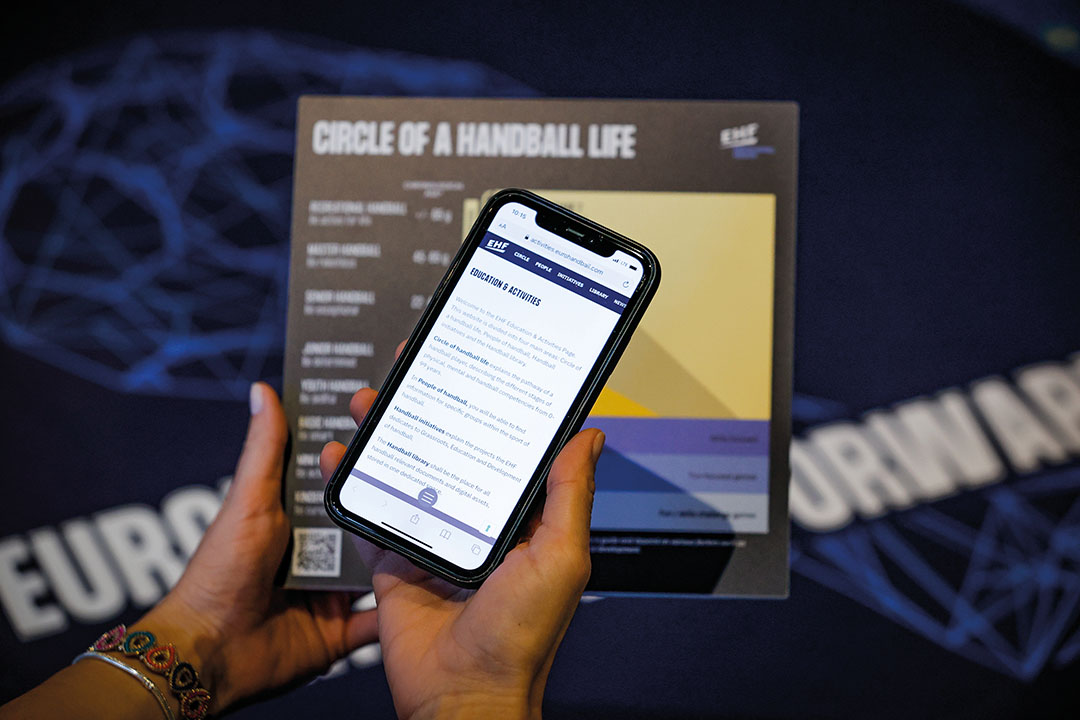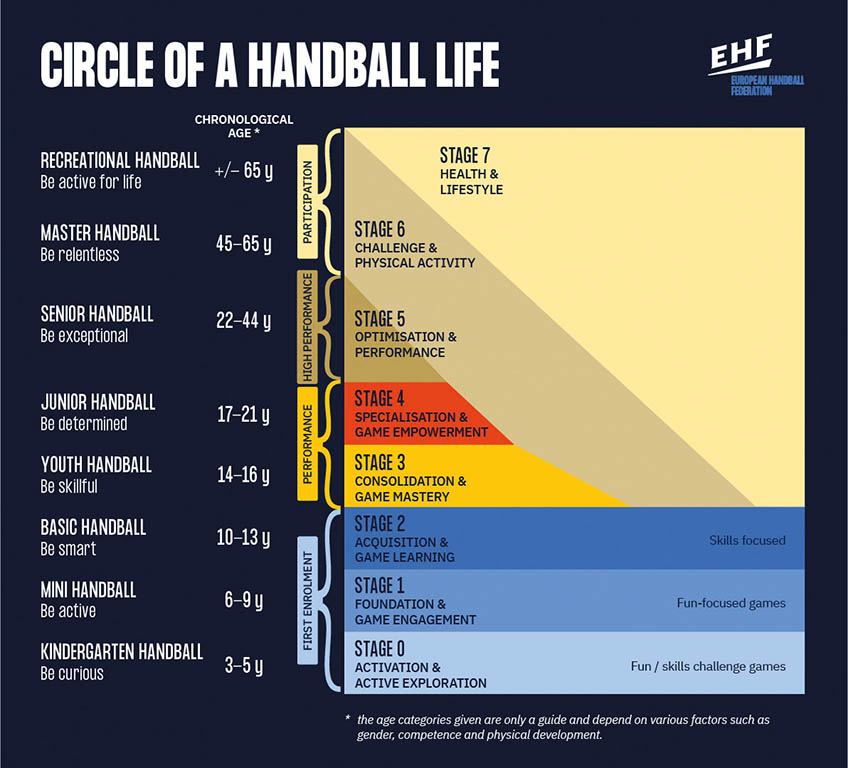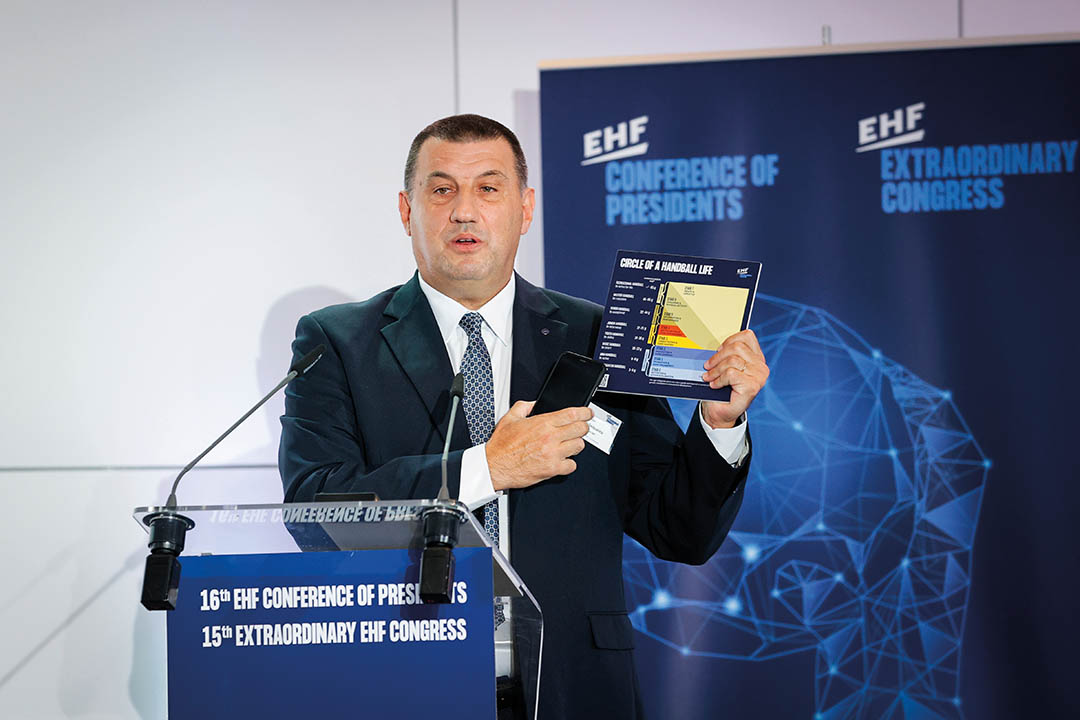Education and sport development have been a key focus for the EHF over the course of 2022, with a new webinar series and a lifelong concept of the sport launched.
In July EHF Activities began a series of free webinars focusing on grassroots and development topics. Each webinar takes the form of an online lecture with an in-depth presentation followed by a Q&A with the speaker.
The webinar series began with a lecture on "Handball 4 Health" by Portuguese scientific researcher Susana Póvoas, associate professor at the University of Maia. Póvoas spoke about the innovative exercise programme which uses recreational team handball as a means to improve health, physical fitness and well-being of different populations.
The series continued through the year with other topics including Dutch talent development, intellectual disabilities (ID), baby handball, wheelchair handball, and the Swedish social cohesion project ‘Hand the Ball’.
Meanwhile, at the Conference of Presidents in Luxembourg on 24 September, Methods Commission Chairman Pedro Sequeira launched the ‘Circle of a Handball Life’ project. The concept is closely connected to the EHF Masterplan, and is a concept intended to take players through the game from childhood to old age, encouraging them to keep playing and enjoying handball throughout their lives.
The concept will be supported by manuals, handbooks and brochures to be published in late 2022 and the following years. It will also be supported by the EHF’s education system, which may in future be enhanced to bring it more closely in line with the circle of life concept.
"The circle of a handball life' project is about the principle of age-appropriate treatment with education, training, forms of competition for our players in their handball lives - starting at the age of three and until the end of their lives," says EHF Secretary General Martin Hausleitner.
"The categories are based on scientific findings, and include which content must be offered at what age in order to offer the best possible sporting education."
Sequeira adds: "Every national federation can adapt this content for their needs. Youth training in Germany and Denmark might start earlier than in Georgia or Azerbaijan, some federations might need only little parts, others might use the full programme, as every federation has its own standards in developing players, teams and leagues – and all find many useful examples in this programme.”
As part of the EHF Master Plan, national federations can apply for a three-year-long project including support from the EHF in terms of knowledge, budget, experts, coaches and material. The aim is for the concept to be equally applicable to both emerging and developed federations.
The circle begins at the age of three with stage 0, incorporating fun and curiosity; it ends with the over-65s at stages 6 and 7, when the challenge of physical activity, health and lifestyle are key.
Each stage uses a different version of handball, capitalising on the sport’s essential simplicity.
Activities and education hub launched
Just ahead of the EHF Congress in September 2022, a new online activities and education hub was launched.
The website has four pillars, intended to introduce the sport and the EHF to those familiar and unfamiliar with the sport, and to provide helpful education and training material.
The ‘circle of a handball life’ section explains the pathway of a handball player, describing the different stages of physical, mental and handball competencies from 3-99 years. In ‘people of handball’, there is information for specific groups within the sport of handball.
‘Handball initiatives’ explain the projects the EHF dedicates to grassroots, education and development of handball, while the handball library will be the place for all handball relevant documents and digital assets, stored in one dedicated space.
CLICK HERE AND VISIT THE WEBSITE


